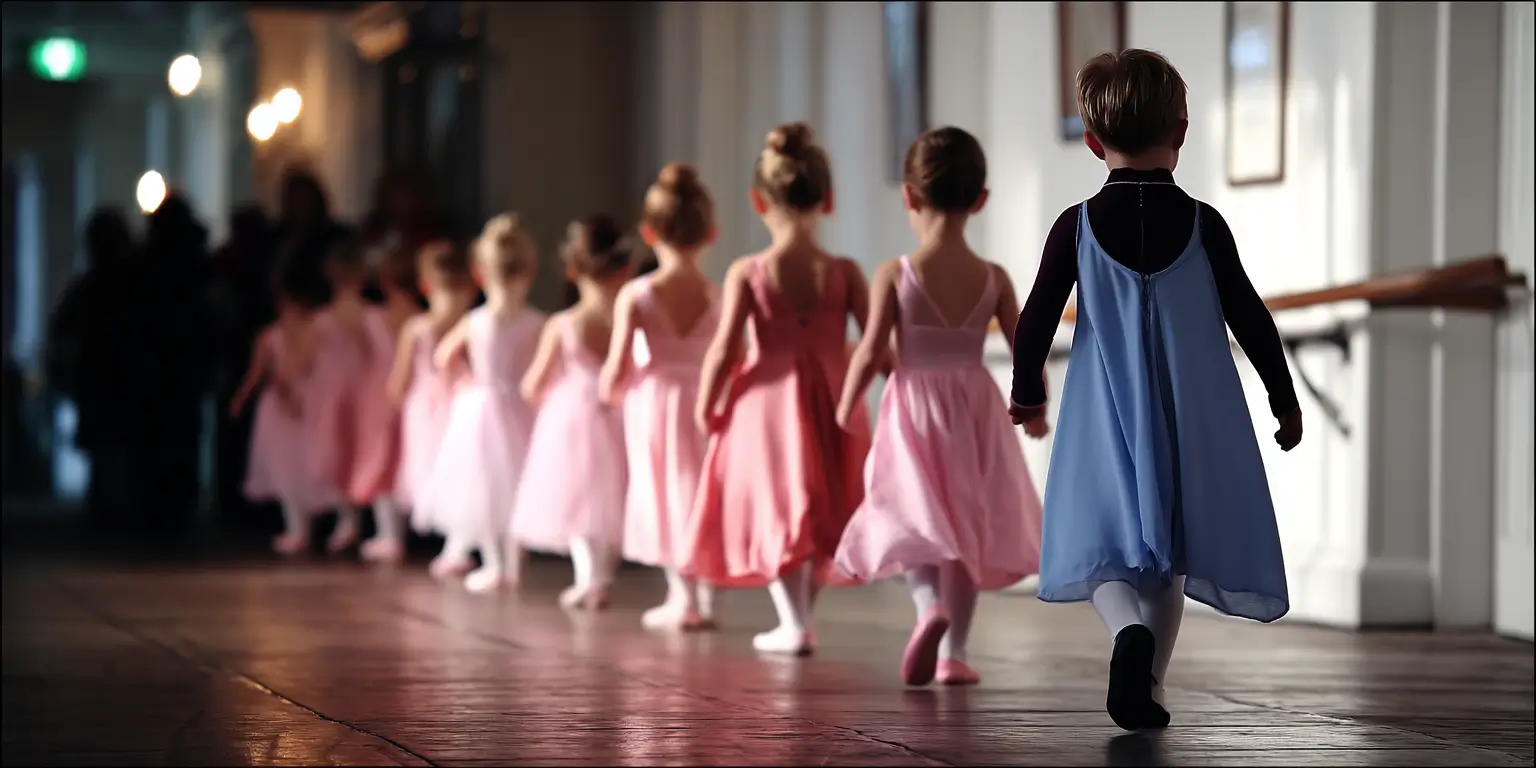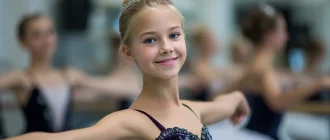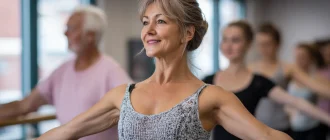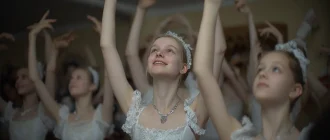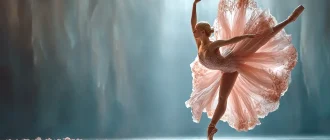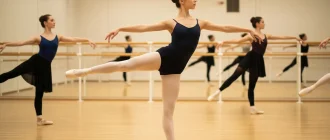Are you searching for information about the best ballet schools in Turkey for international students? This article highlights the top institutions that offer world-class ballet education, combining classical and contemporary techniques. Learn about their renowned faculty, innovative programs, and what sets them apart in Turkey’s dynamic ballet scene.
Key Takeaways
- Turkey’s leading ballet schools, such as the International Ebru Ballet School and the Ankara State Conservatory at Hacettepe University, blend classical and contemporary training methods to attract international students.
- The rigorous training programs at these institutions emphasize technical proficiency and artistic expression, preparing students for successful careers in the ballet world through a well-rounded education.
- Choosing the right ballet school involves evaluating factors such as faculty qualifications, the backgrounds of qualified teachers, notably those trained in the Russian Vaganova method, training methodologies, and personal alignment with the school’s offerings to ensure optimal development for aspiring dancers.
Turkey’s Ballet Schools Podcast
| School & 2025 Programme | City | Why it’s a 2025 stand-out |
|---|---|---|
| Hacettepe University – Ankara State Conservatory | Ankara | Host of the International Turkic World State Ballet Schools Festival (28 Apr – 2 May 2025), confirming its role as the country’s flagship state-run ballet hub. |
| Mimar Sinan Fine Arts University – Istanbul State Conservatory (Ballet B.A., Fall 2025 intake) | İstanbul | Prestigious public conservatory with a dedicated bachelor-level ballet track for 2025-26 and frequent podium finishes at international youth competitions. |
| Istanbul University State Conservatory | İstanbul | Turkey’s oldest continuously operating conservatory remains a key feeder for national companies and offers full-cycle dance education (secondary through doctoral). |
| Akdeniz University – Antalya State Conservatory (Ballet B.A., Fall 2025 intake) | Antalya | Rapidly rising coastal conservatory; ballet major now spans primary, high school, and university levels under refreshed 2025 curriculum. |
| Ebru International Ballet School | İstanbul | Leading private academy boasting 100 % RAD exam pass rate and Turkey’s only RAD-PDTD-credentialed teacher, attracting 40 %+ international students in 2025. |
Best Ballet Schools in Turkey: A Guide for Aspiring Dancers
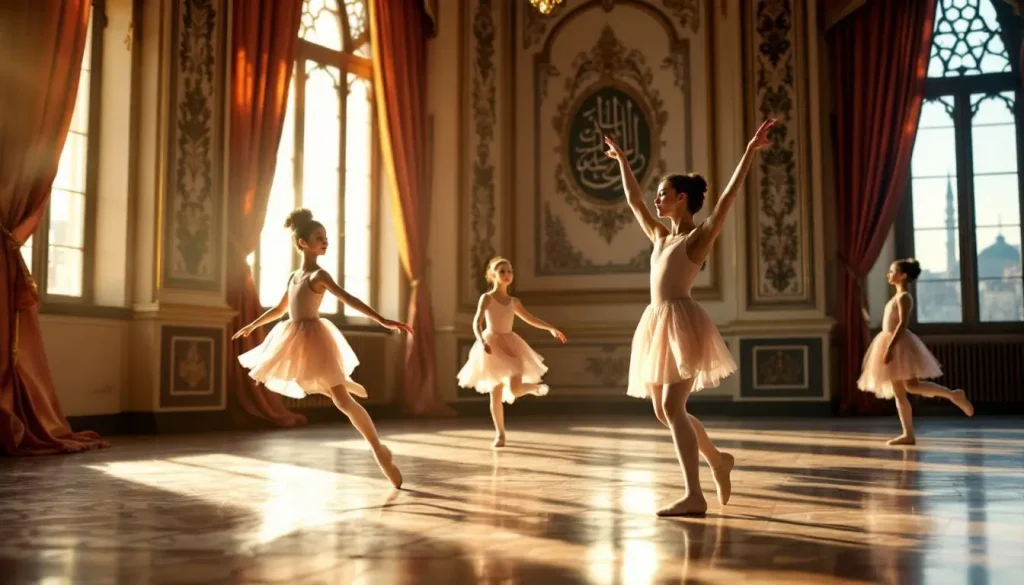
Turkey is home to some of the most prestigious ballet schools, which have nurtured talents for decades. These institutions combine traditional ballet techniques with innovative teaching methods to produce world-class dancers. For instance, the International Ebru Ballet School stands out with its RAD PDTD certification, making it a premier choice for serious ballet students.
The Hacettepe University Ankara State Conservatory, established in 1936, is another cornerstone of ballet education in Turkey. It has a long-standing reputation for producing skilled dancers through its structured programs. The conservatory’s extensive ballet training programs have been refined over the years, ensuring that students receive top-notch education in classical ballet.
Turkish ballet schools are distinguished by their ability to attract a diverse student body. Over 40% of attendees are international students, which speaks volumes about their global appeal. These schools’ training methodologies often combine the Vaganova method with the rigorous standards of the Royal Academy of Dance, offering a comprehensive and versatile ballet education.
Choosing the right ballet school is pivotal for any aspiring dancer. This guide examines each school’s unique offerings and highlights its distinct features. From faculty expertise to student success stories, this resource provides an insider’s view of Turkey’s top ballet institutions.
Turkish Ballet Education
This guide explores Turkey’s finest ballet schools, emphasizing their distinct features and training methodologies. Readers will gain insights into the unique training styles and success stories that distinguish these institutions in the ballet world. Understanding each institution’s strengths will help aspiring dancers and their families make informed decisions about their ballet education.
Schools that blend classical and contemporary training enrich the Turkish ballet scene. These institutions are not just about dance; they offer a holistic education that encompasses music, theater, and the performing arts.
The country’s Ministry of Education plays a crucial role in maintaining high standards across these schools, ensuring that students receive quality training from a young age. Many schools follow the Royal Academy of Dance syllabus and incorporate the Vaganova method, providing a comprehensive and diverse ballet education.
These schools cater to students of all ages and levels, from children taking their first ballet lessons to advanced dancers preparing for professional careers. They offer ballet lessons in an inclusive environment where students can learn, grow, and achieve their full potential.
Many schools also offer programs in multiple languages, including English, Russian, and Turkish, making them accessible to children from a broader range of backgrounds. The language of ballet is primarily French, and proficiency in multiple languages enhances the learning and teaching experience, allowing for a richer and more diverse educational environment.
Additionally, this guide highlights the success stories of graduates, showcasing their influence on the ballet scene in Turkey and internationally. You’ll comprehensively understand Turkey’s best ballet schools and offerings by the end.
International Ebru Ballet School
The International Ebru Ballet School in Istanbul is a beacon of excellence in the Turkish ballet landscape. It is the only school in Turkey with RAD PDTD certification and sets a high standard for ballet education. The school boasts a remarkable 100% pass rate in RAD exams, with 87% of its students achieving merit or distinction, reflecting the effectiveness of its training programs.
The International Ebru Ballet School is renowned for its comprehensive training, which includes the Vaganova method and techniques from the Royal Academy of Dance. This blend ensures that students receive a well-rounded education, preparing them for diverse opportunities in the ballet world. The school’s international appeal is evident, with over 40% of its students coming from various parts of the globe.
Located in the vibrant city of Istanbul, the school offers a unique cultural experience alongside top-tier ballet training. Students are immersed in a rich artistic environment, enhancing their education and personal growth. The school’s commitment to excellence is evident in its faculty and training programs, detailed in the following sections.
Faculty and Training Programs
The International Ebru Ballet School faculty comprises conservatory-trained professionals with extensive experience in the field of ballet. The importance of qualified teachers cannot be overstated, as they bring a wealth of knowledge and expertise to the field of ballet education.
Many of them are graduates of the Russian State Conservatory, where they received a strong foundation in the Vaganova method of ballet training. Prof. Alev Meral Tokgöz, a notable figure in the Turkish ballet scene, has adapted the Vaganova system specifically for educational programs in Turkey, ensuring that students receive rigorous and tailored training.
The teaching staff’s qualifications are impeccable. Each member holds degrees from prestigious conservatories and has over five years of professional experience. This high level of expertise ensures that students receive top-quality instruction, fostering their development into skilled dancers.
The school’s training programs are structured to provide a comprehensive education in ballet. They combine classical techniques with contemporary approaches to create versatile dancers.
In addition to regular training, the school offers summer schools and workshops each year, enabling students to refine their skills and experience diverse teaching styles. Certified by the Ministry of Education, these programs add credibility and ensure students receive a recognized and respected education.
Success Stories
The International Ebru Ballet School has produced numerous successful dancers who have made significant contributions to the world of ballet. One of the most notable alumni is Ş. Ebru Sayın was the first Turkish dancer accepted into the Royal Academy of Dance’s PDTD program with distinction. Her success story is a testament to the high-quality training and support provided by the school.
Many school graduates have joined prestigious ballet companies and gone on to pursue successful careers in the dance field. Their achievements highlight the effectiveness and commitment of the school’s training programs in nurturing talent. These success stories inspire current students and showcase the potential career paths a solid ballet education can open up.
World Dance Center (Dünya Dans Merkezi)
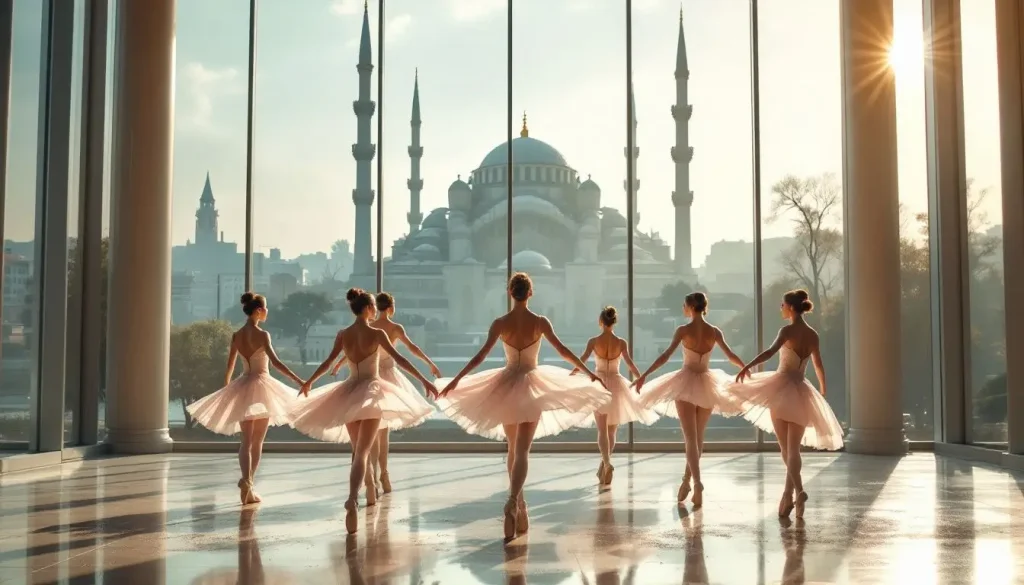
Established in 2007, the World Dance Center (Dünya Dans Merkezi) in Istanbul has quickly become a respected institution in the Turkish ballet community. The center offers a diverse range of dance styles and strives to create a nurturing environment for dancers of all skill levels. Its certified training programs are recognized by the Ministry of Education, ensuring that students receive a structured and credible education.
The World Dance Center’s approach to ballet training is comprehensive and inclusive. It emphasizes the importance of community and social media engagement, fostering a sense of belonging and unity among its dancers. The center shares memories and experiences through its vibrant social media platforms, enhancing its community connections and providing networking opportunities for its students.
The World Dance Center’s certified programs are designed to enhance the technical skills and theoretical knowledge of aspiring dancers. These programs provide a well-rounded education that prepares students for professional careers in ballet and other dance forms. The next sections will delve deeper into the center’s certified training programs and community engagement initiatives.
Certified Training Programs
The World Dance Center offers certified training programs that follow esteemed methodologies such as the Royal Academy of Dance (RAD) and the Vaganova method. These programs and companies offer structured learning pathways for students, ensuring a high-quality education and credibility. Graduating from these certified programs can significantly boost a dancer’s credibility, making them more appealing to other companies and potential employers.
These programs enhance technical skills and improve students’ understanding of ballet theory and history. They also provide valuable networking opportunities within the professional ballet community, connecting dancers with industry insiders and opening doors to various career opportunities.
The center’s commitment to providing high-quality, certified training makes it a top choice for aspiring dancers in Turkey.
Community and Social Media Engagement
Community engagement is a cornerstone of the World Dance Center’s philosophy. The center focuses on fostering connections through dance, creating a supportive and inclusive environment for its students. By sharing memories and experiences on social media, the center enhances its community connections and provides a platform for students to showcase their talents and achievements.
Engagement in community dance initiatives fosters a sense of belonging and provides aspiring dancers with networking opportunities and opportunities for personal growth. The center’s active presence on social media promotes events and workshops, encouraging participation and interaction among dancers.
This approach enriches the student’s experience and helps children build a strong, connected dance community.
Istanbul State Conservatory Ballet School
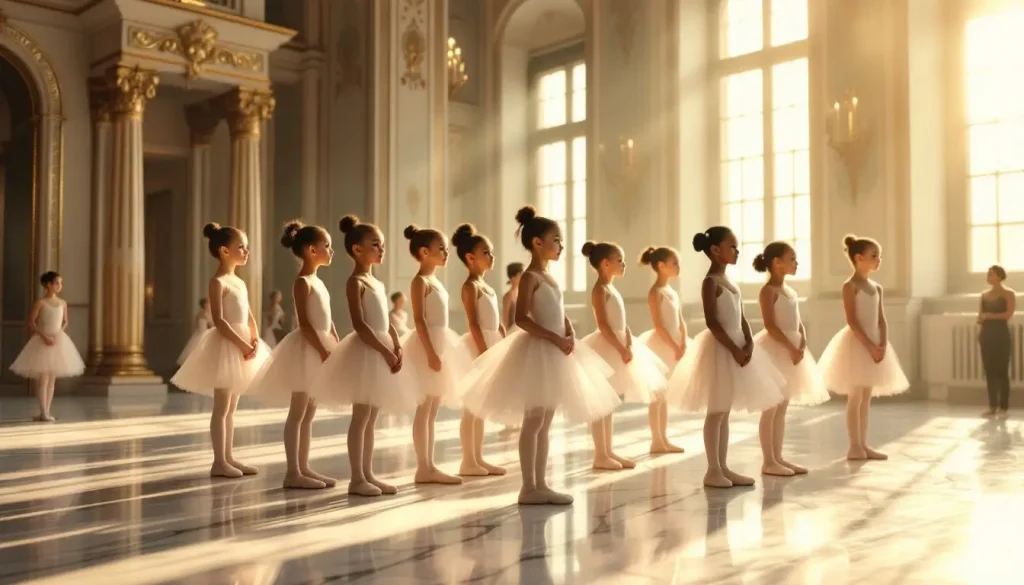
Founded in 1947, the Istanbul State Conservatory Ballet School has a rich history of ballet education. Initially, it followed the British ballet system before adopting the Russian Vaganova method in 1975. This transition marked a significant shift in the school’s training approach, blending classical ballet techniques with modern interpretations to provide a comprehensive education for its students.
The conservatory is renowned for its rigorous training programs that prepare dancers for professional careers. Its curriculum is designed to develop technical proficiency and artistic expression, ensuring students are well-rounded performers. The school’s commitment to excellence is reflected in the success of its graduates, many of whom have gone on to achieve notable recognition in the ballet world.
Located in Istanbul, the conservatory offers a vibrant cultural environment that enhances the students’ education. The city’s rich artistic heritage provides ample opportunities for students to immerse themselves in dance and performance. The next sections will explore the conservatory’s admission process, curriculum, and performance opportunities.
Admission Process
The admission process at the Istanbul State Conservatory Ballet School is highly competitive, reflecting the school’s commitment to maintaining high standards. Prospective students must hold a high school diploma in ballet or an equivalent qualification to be eligible for admission.
Applicants are evaluated on their physical capabilities and artistic potential during the admission process, which may include a series of auditions. These auditions assess the student’s technical skills and creative expression, ensuring that only the most talented and dedicated individuals are admitted.
The rigorous selection process ensures that the conservatory maintains a high caliber of students, contributing to its reputation as a leading institution in ballet education.
Curriculum and Performance Opportunities
The Istanbul State Conservatory Ballet School curriculum is designed to provide a well-rounded education in ballet. It incorporates classical ballet techniques and contemporary dance forms, offering students a diverse training experience.
Language proficiency is also emphasized, as teachers are fluent in multiple languages, including English, Russian, and Turkish. Understanding the language of ballet, primarily French, enhances the learning and teaching experience, making students more versatile dancers capable of performing a wide range of repertoire.
Performance opportunities are a key component of the curriculum, enabling students to gain valuable stage experience and develop their skills. The music conservatory hosts annual recitals on professional stages, where students showcase their talents and artistry. Students collaborate with distinguished choreographers and participate in various showcases, enhancing their performance experience.
Mimar Sinan Fine Arts University State Conservatory
Established in 1947, the Mimar Sinan Fine Arts University State Conservatory has been a pillar of ballet education in Turkey. Initially influenced by British teaching methods, it adopted the Russian Vaganova method in 1975, significantly shaping its training approach. The conservatory offers a range of music, drama, and dance courses, including specialized training in ballet, contributing to a holistic arts education.
The conservatory’s ballet department is renowned for its rigorous training programs, which emphasize technical proficiency and artistic expression. Students are trained in classical ballet techniques, ensuring a strong foundation, while also being exposed to contemporary dance forms, which promotes versatility and adaptability. This comprehensive approach prepares students for various opportunities in the ballet world, from performance to choreography.
Mimar Sinan Fine Arts University State Conservatory’s commitment to excellence is reflected in its alumni, who have achieved notable success in the ballet community. These achievements highlight the conservatory’s role in shaping the careers of talented dancers and its contribution to the global ballet scene.
Training Methodology
The training methodology at Mimar Sinan Fine Arts University State Conservatory is rooted in the Vaganova method of ballet, which emphasizes precision, discipline, and artistic expression. This method is complemented by motivational teaching approaches from the Royal Academy of Dance, creating a balanced and effective learning environment.
Classical ballet techniques form the foundation of the conservatory’s training programs, ensuring students develop the discipline, grace, and strength required for a successful ballet career. The combination of established methodologies and innovative teaching practices ensures that students receive a well-rounded education, preparing them for various professional opportunities in ballet.
Alumni Achievements
Mimar Sinan Fine Arts University State Conservatory alums have made significant contributions to the global ballet scene. Many have gained recognition for their performances and choreography, showcasing the high-quality training they received at the conservatory.
Notable alums include celebrated ballet dancers and performers who have achieved success both nationally and internationally. Their achievements highlight the conservatory’s role in nurturing talent and preparing students for successful careers in ballet.
Hacettepe University Ankara State Conservatory
Established in 1936, Hacettepe University Ankara State Conservatory is renowned for its high-quality ballet training programs, including the Vaganova method. The conservatory has a long-standing reputation for producing skilled dancers through its comprehensive education programs.
Its curriculum covers various styles and techniques, preparing students for performance and academic excellence. This institution is a significant part of Turkey’s rich ballet tradition, contributing to the country’s cultural landscape by nurturing talent and promoting ballet across the country.
The conservatory’s curriculum encompasses classical ballet, contemporary dance, and other performance arts, offering students a well-rounded education. The instructors, who have professional backgrounds, ensure that students receive top-quality training and ample opportunities for live performance. This blend of rigorous training and performance experience makes the conservatory a premier choice for aspiring dancers in Turkey.
Hacettepe University Ankara State Conservatory’s strong reputation within the ballet community is reflected in the success of its graduates. Many have pursued professional careers in music and dance, contributing to the conservatory’s legacy of excellence.
Courses Offered
The courses offered at Hacettepe University Ankara State Conservatory cater to a range of skill levels, from beginners to advanced dancers. Beginner courses introduce students to the fundamentals of ballet, focusing on basic techniques and body positioning. These courses are suitable for students new to ballet who wish to establish a solid foundation for further training.
Intermediate and advanced courses build upon this foundation, emphasizing more complex movements, performance techniques, and artistry. These programs often include ballet-related conditioning to enhance strength and flexibility, preparing students for professional opportunities in the ballet world.
Facilities and Resources
The conservatory boasts state-of-the-art facilities crucial to the training of aspiring dancers. These include spacious rehearsal rooms, performance stages, and specialized equipment for ballet training. High-quality facilities and resources significantly enhance students’ training experiences, preparing them for professional careers in ballet.
Ballet schools, such as the International Ebru Ballet School and World Dance Center, also offer modern studios equipped for various dance styles and techniques. These facilities provide a conducive environment for students to develop their skills and achieve their full potential in ballet.
Private Ballet Studios in Turkey
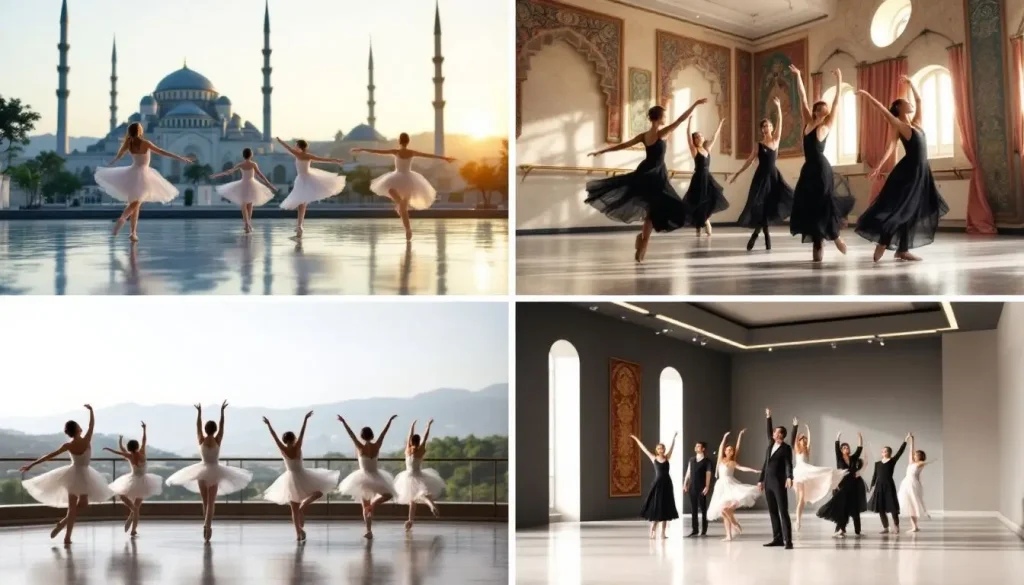
Private ballet studios in Turkey are recognized for their focused and specialized training, tailored to the individual needs of each student. These studios offer a nurturing environment where dancers receive personalized attention and guidance, enhancing their skills and passion for ballet.
Prominent studios, such as those affiliated with Mimar Sinan Fine Arts University, provide specialized programs in performing arts, including ballet. These programs emphasize classical and contemporary styles, ensuring a well-rounded education for students.
The World Dance Center offers a diverse range of dance styles and educational opportunities, fostering a supportive atmosphere for dancers. Additionally, these studios actively engage with their communities through social media, fostering a sense of connection and support among students, teachers, and dance enthusiasts.
Private studios play a crucial role in the Turkish ballet scene, offering an alternative to larger institutions. They provide a more intimate setting where students can build strong mentor-student relationships and receive tailored training that meets their needs and goals.
Studio Profiles
Training methodologies at private ballet studios often emphasize both classical ballet techniques and modern dance styles to provide a well-rounded education. For instance, the Mimar Sinan Fine Arts University State Conservatory incorporates traditional ballet techniques with innovative contemporary practices, promoting versatility in dancers.
These studios offer a range of programs designed to accommodate different skill levels and learning preferences. By providing a mix of classical and contemporary training, they ensure that students are well-prepared for various opportunities in the ballet world.
Student Testimonials
Students often describe their experiences at private ballet studios in Turkey as transformative, emphasizing the skills they acquire and the confidence they build. The dedicated faculty and structured programs enable personalized advancements in their ballet journey, significantly impacting their development as dancers.
Parents also appreciate the emphasis on ballet education and the development of confidence and discipline in their children. Overall, students, teachers, and parents expressed high satisfaction, noting significant improvements in dance technique and artistry.
Summer Schools and Workshops
Summer schools and workshops in Turkey offer additional training opportunities for aspiring dancers, enabling them to refine their skills and gain valuable experience. These programs are designed to provide intensive training in ballet and other dance forms, catering to dancers of all levels.
Turkey hosts several renowned summer ballet programs, including workshops that emphasize both classical and contemporary ballet styles. These programs attract international participants, providing a diverse cultural experience and fostering a global dance community.
Participating in summer schools and workshops helps dancers improve their technique and offers networking opportunities with professionals and peers. These experiences can be instrumental in a dancer’s career, providing exposure to different teaching styles and performance opportunities. Additionally, engaging with the dance community through social media can enhance community engagement and keep dancers connected with the latest trends and opportunities.
Popular Programs
Turkey’s most popular summer programs include the Bolshoi Ballet Academy’s Summer Intensives. These programs draw international participants and provide a rigorous training experience. They emphasize classical and contemporary ballet styles, ensuring dancers receive a well-rounded education.
Aspiring dancers must research the registration details of these programs to secure their participation. These summer schools provide a unique opportunity to train with top instructors and explore various ballet techniques and styles.
Benefits of Participation
Before:
Participating in summer schools and workshops offers numerous benefits for aspiring dancers. These programs provide intensive training that can significantly enhance a dancer’s skills and performance techniques. They also offer opportunities for dancers to engage in local performances and competitions, helping them develop their confidence and stage presence.
After:
Participating in summer schools and workshops offers numerous benefits for aspiring dancers:
- Intensive training can significantly enhance a dancer’s skills and performance techniques
- Opportunities to engage in local performances and competitions
- Development of confidence and stage presence
Additionally, summer programs foster interaction among dancers and promote events through vibrant social media platforms, creating a sense of community and belonging. These experiences can be invaluable for personal growth and professional development in ballet.
Choosing the Right Ballet School
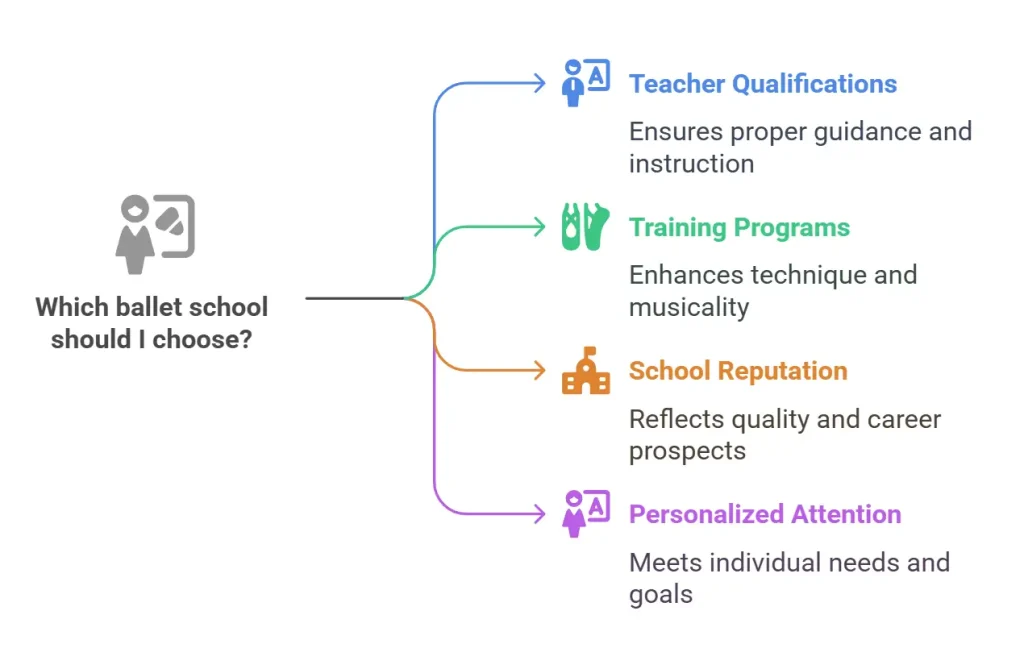
Choosing the right ballet school is a critical decision for any aspiring dancer. It requires aligning the school’s offerings with the dancer’s personal goals and preferences, ensuring that the selected institution can meet their needs and aspirations.
This section guides readers through the key factors to consider when selecting a ballet school, including the importance of training methodologies such as the Vaganova method and the essential questions to ask during the decision-making process.
The unique curricula and training programs offered by different schools can significantly impact the development and career prospects of dancers. Graduates from top schools, such as the International Ebru Ballet School, have successfully gained admission to state conservatories and professional ballet companies, underscoring the importance of quality education. Understanding each school’s strengths and offerings will help dancers make informed decisions that align with their career goals.
Dancers should consider key factors such as their age, teacher qualifications, training methodologies, and the school’s reputation to select the institution that best suits their needs. Asking the right questions and conducting thorough research will ensure aspiring dancers find the right environment to nurture their talent and achieve their ballet dreams.
Key Factors to Consider
When selecting a ballet school, it is essential to consider the qualifications of the teaching staff. High-quality teacher qualifications can significantly influence dancers’ training effectiveness and overall development. Look for schools where teachers have formal training, such as conservatory education, and professional experience in ballet, particularly those trained in the Russian Vaganova method. These qualifications ensure proper guidance and instruction.
Additionally, participation in various training programs, workshops, and summer schools can enhance a dancer’s technique and musicality, promoting personal growth and professional development. These experiences provide valuable networking opportunities and exposure to diverse teaching styles, enabling dancers to develop a well-rounded skill set and prepare for a successful career in ballet.
Questions to Ask
When selecting a ballet school, key questions can provide valuable information and insights into the quality and level of education and training. For example, inquire about the school’s proof of proficiency in ballet systems, such as RAD or Vaganova, to ensure that the institution meets recognized standards.
Additionally, ask about the level of personalized attention students receive and the opportunities for performance and professional development. Understanding these aspects will help determine whether the school can meet your needs and goals as an aspiring dancer.
Resume
In summary, Turkey offers a diverse and rich landscape for ballet education. Top institutions provide comprehensive training programs and unique opportunities for aspiring dancers. Each institution has its own strengths and unique offerings, from the International Ebru Ballet School, which holds RAD PDTD certification, to the historic Istanbul State Conservatory Ballet School.
The blend of classical and contemporary training methodologies, including the renowned Vaganova method, high-quality facilities, and experienced faculty, ensures students receive a well-rounded education.
Choosing the right ballet school involves considering several key factors, including teacher qualifications, training programs, and the school’s reputation. Aspiring dancers can find the institution that best suits their needs and goals by asking the right questions and conducting thorough research. With the right education and training, the next generation of ballet talent in Turkey is poised to achieve great success on the global stage.
Frequently Asked Questions
What is the ideal age for children to begin formal ballet training in Turkey?
Most reputable Turkish academies accept young dancers into pre-ballet groups around ages 4-6, when coordination and musicality can be developed through play. Formal technique classes typically start at age 8, because bones and joints are better prepared for the demands of classical work.
Are there English-language ballet programs for expatriate or international families?
Yes. Several private academies in Istanbul, Ankara, and Bodrum offer bilingual tracks (Turkish/English) and prepare students for the Royal Academy of Dance or American Ballet Theatre exams, making them accessible to non-Turkish speakers.
What does the entrance audition for a Turkish state conservatory usually involve?
Candidates perform set barre and center combinations, demonstrate flexibility and turnout, and complete a brief musical-rhythm test. A medical screening checks foot structure, spinal alignment, and overall physical suitability for professional training.
How much does tuition cost at private ballet schools in major Turkish cities?
Annual fees vary widely: hobby programs start around € 1,000, while elite pre-professional tracks can exceed € 4,500. Costs often include studio rental, exam entry fees, and performance costumes, but not pointe shoes or physical therapy.
Which training syllabi are most common—RAD, Vaganova, or Cecchetti?
Istanbul and Ankara schools frequently teach dual syllabi: Vaganova for daily technique and the Royal Academy of Dance for graded examinations. Cecchetti-based programs are rarer but can be found in İzmir and Antalya.
Do talented students have access to scholarships or financial aid?
State conservatories charge minimal tuition and offer merit stipends that cover living expenses. Private academies often waive 25-100 % of fees for students who place highly in national competitions or receive top marks in annual assessments.
Can international students secure a long-term visa to study ballet in Turkey?
Yes. Schools issue an acceptance letter that allows applicants to obtain a one-year student residence permit, renewable each academic year. The migration authority requires proof of health insurance and sufficient funds.
How is housing arranged for out-of-town or overseas dancers?
State schools typically provide dormitories within walking distance of studios. Private academies partner with supervised student residences or vetted host families and help match minors with guardianship services when needed.
What performance opportunities do students receive during the academic year?
Ballet departments mount two major productions—usually a classical full-length in winter and a mixed bill in spring. In addition, many schools tour regional theaters or outdoor festivals, giving dancers valuable stage time and résumé credits.
How long is the standard pre-professional curriculum in Turkey?
State conservatory programs span eight years, following a two-year preparatory cycle, mirroring the Russian model. Private academies often offer flexible three- to six-year tracks aligned with international graded-exam systems.
What is the key difference between a state conservatory and a private studio?
Conservatories grant nationally recognized diplomas and integrate academic subjects, whereas private studios focus solely on dance and rely on external exam boards for certification. Conservatory graduates are eligible for government ballet company auditions immediately upon completion.
Are male students in special demand, and do they receive fee reductions?
Absolutely. Because male enrollment is lower, schools frequently provide significant discounts—sometimes full scholarships—to attract and retain promising boys, especially those with strong partnering potential.
Is contemporary or character dance included in the curriculum?
Yes. From the second or third year, students take weekly classes in contemporary technique, character dance from various folk traditions, and occasionally jazz, ensuring stylistic versatility for modern repertoire and musical theatre auditions.
What kind of medical and physical therapy support do top schools provide?
Leading programs partner with sports-medicine clinics for regular screenings, on-site physiotherapy sessions, and injury-prevention workshops that cover Pilates, strength conditioning, and pointe readiness assessments.
How competitive is the pathway into the Turkish State Opera and Ballet companies?
Graduates must pass company auditions that assess their technique, artistry, and mastery of repertoire. On average, only 10-15% of final-year conservatory students secure immediate corps-de-ballet contracts, making early networking and competition exposure crucial.
Can credits earned in Turkey be transferred to European conservatories?
Generally, yes, provided the school follows the European Credit Transfer and Accumulation System (ECTS). Students moving to institutions in Germany, Italy, or the Netherlands usually receive full or partial recognition of completed coursework.
What summer intensive options are available in Turkey?
Istanbul and Antalya host two- to four-week intensives each July that feature guest faculty from the Bolshoi, the Royal Ballet, and ABT. Programs combine daily technique classes with repertory workshops and Turkish folk-dance seminars.
What is the typical class size in respected Turkish ballet programs?
Lower grades are capped at 12-15 dancers to allow for close correction, while advanced levels may accommodate up to 18 dancers. Schools strive to maintain a 1:15 teacher-to-student ratio to ensure that each student receives individual attention.

